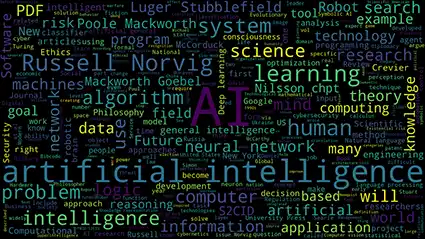Music videos have long been an essential component of the music industry, providing a visual complement to the audio experience. However, the production of music videos is often costly and time-consuming, requiring large production teams and extensive planning. Artificial intelligence (AI) is now being used to streamline the music video production process and open up new possibilities for visual storytelling.
AI music videos are created using machine learning algorithms that analyze audio data and generate corresponding visual content. This can include anything from abstract visualizations of the music to fully-realized narratives and characters. The result is a music video that is created entirely by a machine, with little to no human intervention.
One of the primary advantages of AI music videos is their efficiency.
The process of creating a music video can be streamlined and automated using AI, allowing for faster production times and lower costs. Additionally, AI music videos can be customized to match the specific style and tone of the music, ensuring a cohesive and immersive visual experience.
However, AI music videos are not without their limitations. One of the primary challenges in creating an AI music video is ensuring that the visuals are synchronized with the audio. While AI algorithms can analyze the audio data and generate corresponding visuals, it is still difficult to ensure that the visuals accurately reflect the emotions and nuances of the music. Additionally, AI music videos lack the creative input and personal touch of a human director, which can result in a lack of artistic depth and nuance.
Despite these limitations, AI music videos have already made significant strides in the music industry. In 2021, the music video for “Lost Cause” by Billie Eilish was created using AI. The video features Billie and several other actors engaging in a choreographed dance routine, with their faces replaced by AI-generated masks. The masks were created using machine learning algorithms that analyzed the faces of the performers and generated corresponding masks that matched their movements.
The “Lost Cause” music video demonstrates the potential of AI to create visually striking and immersive music videos. The use of AI-generated masks allowed for greater creative freedom and flexibility, while also streamlining the production process.
In addition to Billie Eilish, other musicians and artists are also exploring the potential of AI in music video production. In 2020, musician Taryn Southern released an album that was entirely produced using AI, including the music videos. The music videos for the album were created using AI algorithms that analyzed the audio data and generated corresponding visuals.

Madhav-Malhotra-003, CC0, via
Wikimedia Commons
The use of AI in music video production is not limited to just visuals.
AI can also be used to enhance the overall production quality of music videos. For example, AI algorithms can be used to automatically color correct and stabilize footage, improving the overall visual quality of the music video.
The future of AI music videos is still uncertain, but there are already exciting developments in the field. Researchers at Stanford University have developed an AI system that can create music videos from scratch using a variety of visual and audio inputs. The system, called DALL-E 2, can generate complex scenes with multiple characters and detailed backgrounds, making it ideal for narrative music videos.
In conclusion, AI music videos are a new frontier in visual storytelling, offering the potential to streamline production and open up new possibilities for creativity and collaboration. While there are still limitations to the technology, the success of AI music videos like “Lost Cause” demonstrates the potential for AI to create visually striking and immersive music videos. As the technology continues to develop, we may see a future where AI plays an even greater role in the music video production process, changing the way we think about music and visual storytelling.